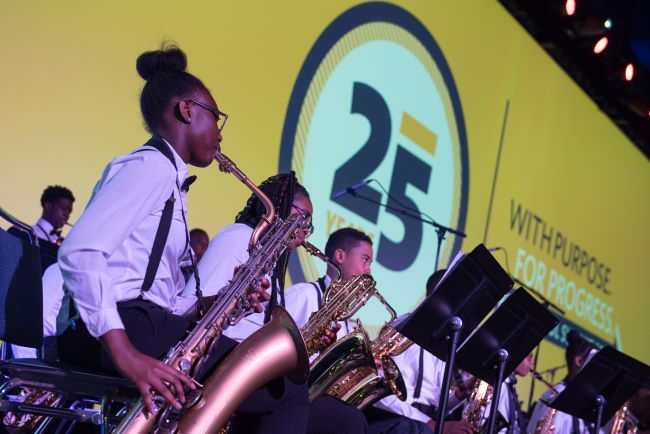KIPP Celebrates 25th Anniversary at Annual Schools Summit
BySammy G. Allen
HOUSTON – Tanaya Washington attended a KIPP Academy in South Bronx, N.Y. and is now an assistant principal at KIPP WAYS Academy in Atlanta.
Three of Washington’s five children attend KIPP schools, and she was one of hundreds of KIPP alum who shared their experiences this week at the annual KIPP Summit as the charter school marks its 25th anniversary.
“It was definitely one of the most transformative times of my life I can say at this point,” said Washington, who ended up in Atlanta after attending Spelman College. “My mom found out about it word-of-mouth and asked about how I could enroll in the fifth grade. I formed a strong bond with the teachers there. They were really big on relationship-building. Even though I went to a public high school, I still kept in touch.”
Eventually, the group formed the KIPP to College program that helped with SAT prep, internships and essay-writing, she said. While at Spelman, she began volunteering at the academy – a few blocks away from the college campus – and eventually gained employment there as a teacher’s assistant, a sixth-grade math teacher and, last year, became assistant principal.
“I’m just proud KIPP is still doing what it set out to do,” Washington said during the three-day summit.
Richard Buery Jr., chief of policy and public affairs for KIPP, said there are almost 30,000 KIPP alum and 100,000 current enrollees, making it “about the 30th-largest school district in the country.”
KIPP, which stands for Knowledge is Power Program, is a network of free college-prep schools with open enrollment across the United States. It opened its first school in Houston in 1994 and soon its second in New York.
KIPP touts 242 schools in 20 states, including the District of Columbia. Among them are 101 elementary schools, 106 middle schools and 35 high schools.
“Part of our theme this year was having an alumni-led conference as part of our 25th anniversary and creating these spaces for different alum to share their skills and talents with the world,” said Buery.
Most KIPP students, 95 percent, are African-American or Latinx, and 88 percent are eligible for federal free or reduced-price meal programs.
“I think the promise of charter education is fundamentally about helping to support innovation throughout the entire system,” he added. “It’s a wonderful blessing to operate one excellent school. I think the real win is that the work of operating an excellent school can have an impact into the broader system.”
To read the rest of the story click here.
